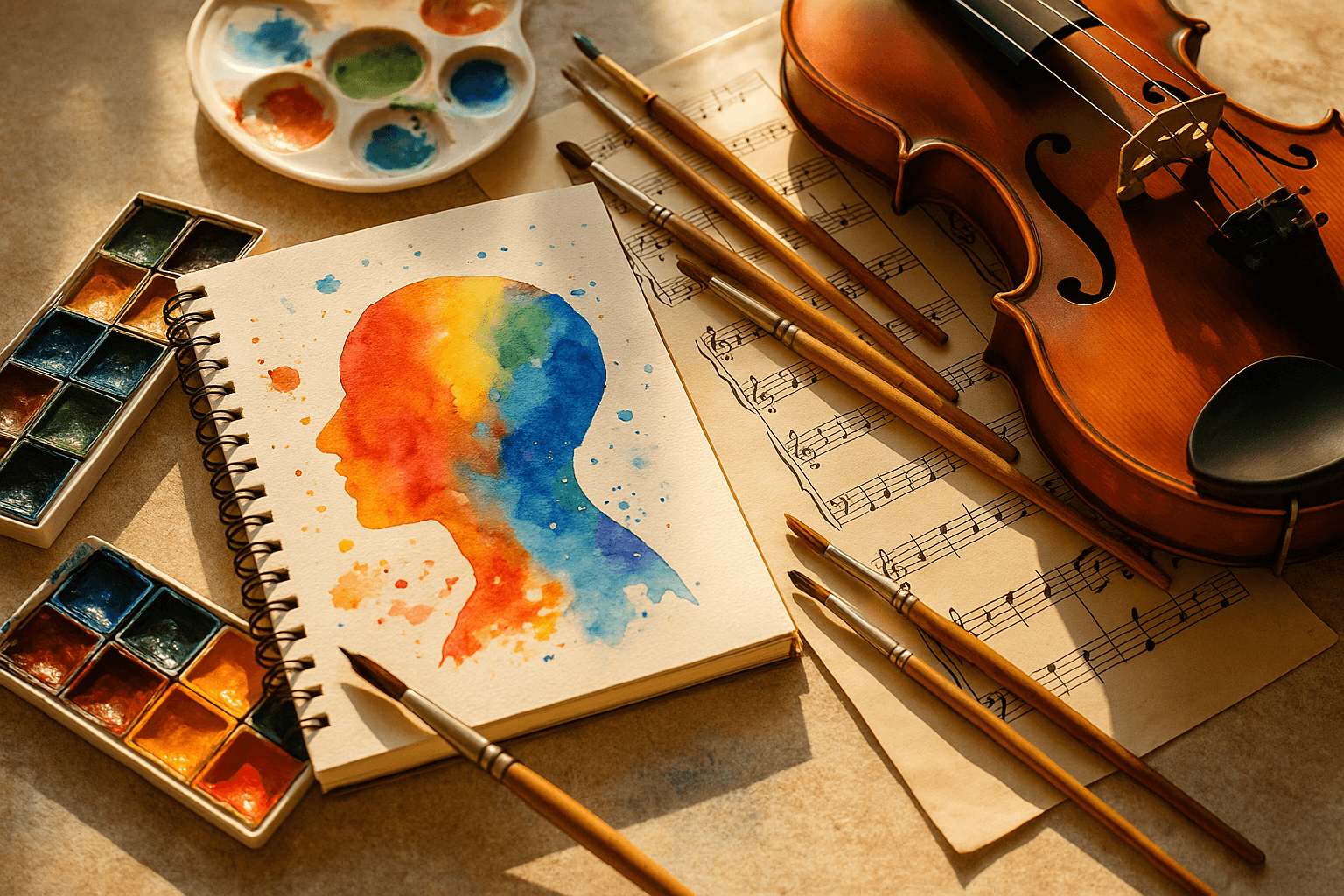We’ve all felt the mood boost from a great concert or an inspiring museum visit. Now, research confirms that cultural participation can significantly benefit mental health. Engaging in the arts – whether attending live performances, creating art, or visiting cultural events – is more than just entertainment. It can reduce stress, combat loneliness, and even alleviate symptoms of depression and anxiety. Scientists have found that arts engagement has “tangible effects on health, from supporting cognitive development and protecting against decline, to reducing symptoms of mental illness and enhancing wellbeing”. In fact, these benefits can work via some of the same neurological pathways as medicine by lowering stress hormones and boosting our mood.
Less Depression, More Joy
One major study in the UK, conducted with the World Health Organization, revealed how powerful even occasional cultural activities can be. The government-commissioned review found that going to arts events or participating in cultural activities, even only every few months, confers significant benefits – including easing depression and physical pain and improving overall quality of life. For example, involvement in music and performance was linked to notable reductions in depression and stress levels, leading to better quality of life for participants. In practical terms, this might mean that a weekly choir practice or monthly trip to a gallery could make you feel calmer and more positive. Such activities provide an outlet for expression and social connection, which are both key for mental wellness.

Connecting and Healing
Another striking finding is how cultural participation helps reduce loneliness and strengthen social bonds, which are crucial for mental health. Group activities like community theater, dance classes, or craft workshops bring people together and create a sense of belonging. One large study of over 3,000 young adults found that those who took part in organized artistic or musical activities felt happier and that their lives had more meaning and value as a result. This suggests that cultural engagement can foster purpose and optimism, especially for youth navigating life’s challenges.
Healthcare experts are taking notice too. Some doctors and therapists now recommend “social prescriptions” – like joining an art class or visiting a museum – as complements to traditional treatments for stress or depression. The reason is clear: arts and culture can be therapeutic. They offer a constructive distraction, reduce isolation, and help people process emotions. In older adults, activities such as painting or attending concerts have even been associated with delayed cognitive decline and a lower risk of dementia.
A Holistic Approach to Wellness
All this research points to a powerful message: taking part in cultural life isn’t just fun – it’s good for your mind and body. From improving mood and self-esteem to reducing the need for medication, the arts can play a role in a healthier, happier life. As Professor Daisy Fancourt of the WHO Collaborating Centre on Arts & Health summarizes, engaging with the arts can reduce mental illness symptoms and even help people manage their health in ways that ease pressure on healthcare systems. In a world where anxiety and loneliness are on the rise, cultural participation emerges as an accessible, enjoyable way to support mental health. So next time you attend a play, dance at a festival, or pick up a paintbrush, remember – you’re not just enriching your life culturally, you may also be healing yourself in the process.




